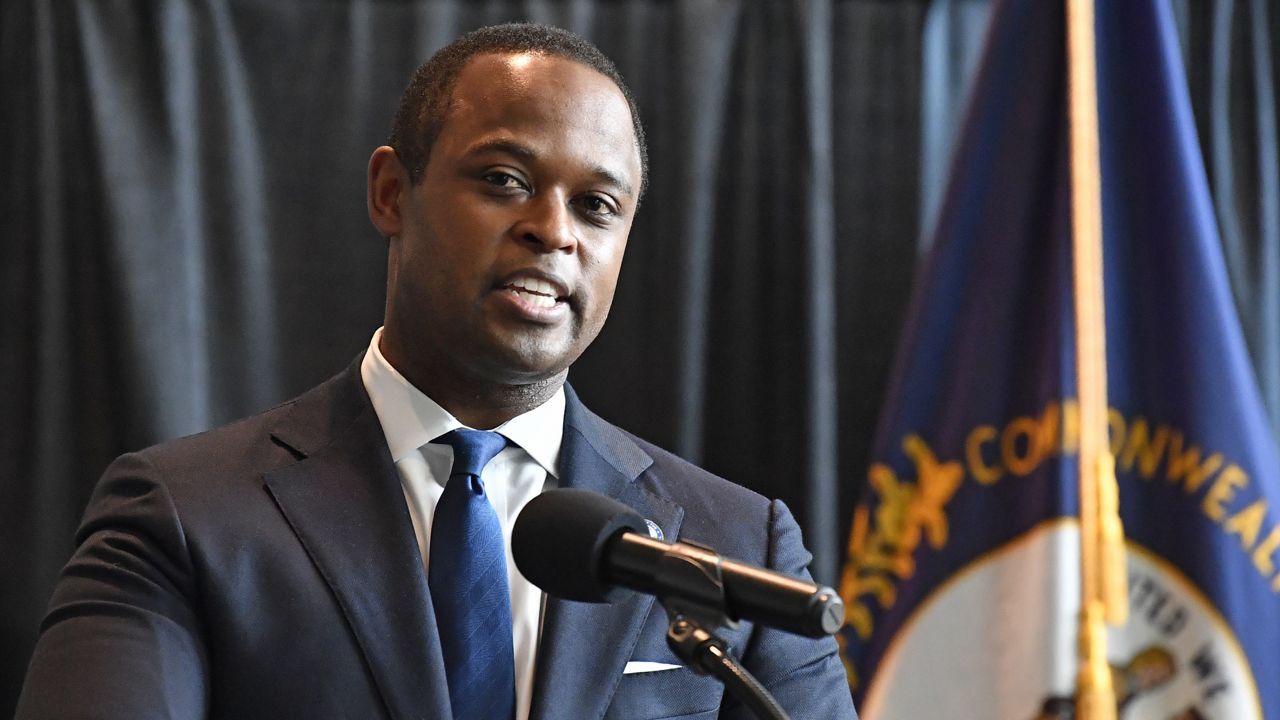FRAKNFORT, Ky. — Kentucky Attorney General Daniel Cameron is asking a state appeals court to overturn an injunction issued last week that blocks the state’s abortion ban.
The injunction ruling by Louisville Circuit Court Judge Mitch Perry prevents the state’s near-total ban on abortion from taking effect. The state’s two abortion clinics in Louisville, EMW Women’s Surgical Center and Planned Parenthood, have continued providing abortions since the judge first blocked the law last month.
Cameron’s appeal asks the Supreme Court to take up the issue, which would bypass the Court of Appeals. He said the Louisville judge “created the Kentucky version of Roe v. Wade.”
“I urge our appellate courts to reject the abortion facilities’ baseless argument that our constitution contains a previously unrecognized right to an abortion,” Cameron said in a media release Thursday.
In his ruling last week, Perry ruled there is “a substantial likelihood” that Kentucky’s new law violates “the rights to privacy and self-determination” protected by the state constitution. Kentucky is one of 13 states with so-called “trigger laws” in place that took effect when the U.S. Supreme Court overturned Roe v. Wade in late June.
That law allows abortions only to save the life of the pregnant patient or to prevent disabling injury. It provides no exceptions for pregnancies resulting from rape or incest or for disabling fetal anomalies. The lawsuit also involves a 2019 "heartbeat bill" passed by the General Assembly, banning abortions after six weeks. Perry blocked both laws a few days after the landmark decision by the Supreme Court that overturned Roe v. Wade.
In his fiery appeal, Cameron echoed the majority opinion in Dobbs v. Jackson Women’s Health Organization, which argued that the Supreme Court decision in Roe was an “exercise of raw judicial power” and the court had taken up authority that belonged to the legislature. He argued Perry’s injunction had done the same. “The circuit court arrogated itself to the legislative power that rightly belongs to the people."
By issuing the injunction, Cameron said that the court had opened itself up to “case after case asking how far the right to abortion goes,” and that it threatened “to push the Courts of Justice into the political fire for decades to come.”
He asked the Court of Appeals to dissolve the injunction. In a separate motion, Cameron asked to transfer the case to the Supreme Court in order to resolve the case as soon as possible.
Kentuckians are set to vote in November on a constitutional amendment that would ensure there are no state constitutional protections for abortion.
The Associated Press contributed to this reporting.





